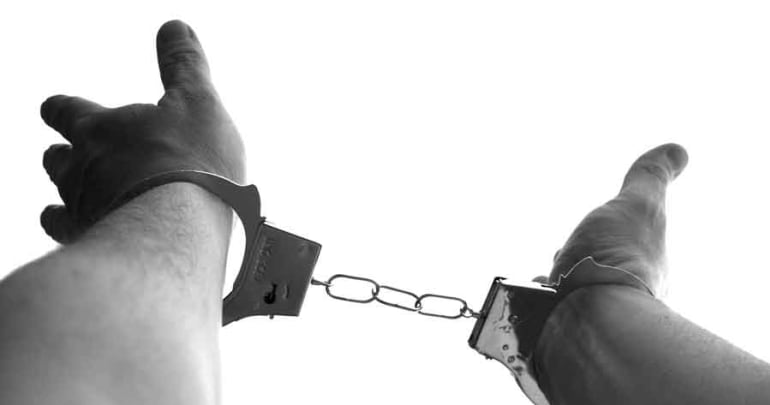Have you ever wondered how effective CBT therapy for sex addiction is? Sex addiction is a serious problem with a widespread effect on many people surrounding the addict. Some might believe that it impacts only the two involved but that couldn’t be further from the truth. If you know or are involved with a sex addict you understand the toll it takes.
Do you know someone who struggles with compulsive sexual behavior? Does the impact of their actions spread outward beyond themselves and the people they sleep with? How do you know when it’s time to seek CBT therapy for sex addiction or another type of treatment? Continue reading to learn more about sex addiction and how to treat and work through it.
Understanding CBT Therapy for Sex Addiction
What do you think of when you hear the term sex addiction? Different people think of different things and what some people consider inappropriate is only mild to others. But sex addiction doesn’t only refer to how much sex someone has. It’s generally agreed that sex addiction
refers to compulsive and repetitive sexual behaviors that negatively impact a person’s life.
Compulsive actions in the face of negative consequences are the key component of any addiction diagnosis. Addicts continue pursuing their addictive behaviors no matter what kind of consequences happen. They may run themselves out of jobs, homes, or even their own families as a result of their addiction and still keep going.
Still, there are many misconceptions surrounding sex addiction. It’s difficult to qualify and quantify a disorder or addiction whose definition depends on who you ask. Defining an “appropriate” amount of sex changes with each person. Answers to that question hinge on societal norms, age, location, occupation, religious beliefs and more.

Discover the real nature of sex addiction and why it is considered an addiction and not simply a hyperactive libido.
More infoDiagnosing Sex Addiction
Some sex addictions are better explained by co-occurring substance addiction. Drug or alcohol addiction needs to be ruled out first before considering a hypersexual disorder diagnosis. One study defines sex addiction as “recurrent and intense sexual fantasies, sexual urges, and sexual behavior” lasting for at least six months.
The amount of sex or number of sexual partners someone has doesn’t necessarily determine whether someone has a sex addiction. Diagnosing the condition has more to do with the reasoning behind a person’s sexual behaviors. Are they acting out to compensate for negative beliefs about themselves?
The American Psychiatric Association chose to keep from including sex addiction, or hypersexual disorder in the most recent version of the DSM, the DSM-5. Even professionals have a difficult time agreeing on precise criteria for diagnosing the disorder. Although it has a considerable impact on 3 to 6 percent of the population, it wasn’t included.
Even though the APA didn’t include it in the DSM-5, people still seek CBT therapy for sex addiction. Hollywood celebrities publicly discussing their courses in sex addiction treatment programs made others consider their own behaviors. Some choose to attend a fully-fledged treatment program while others simply seek treatment from a therapist.
Seeking CBT Therapy for Sex Addiction
CBT stands for cognitive behavioral therapy. It operates on the idea that people’s cognitions, or automatic thoughts, determine many of their behaviors. People with unhealthy or harmful behaviors usually carry negative beliefs about themselves, their surroundings, and their future. CBT aims to change these automatic thoughts in order to encourage more positive behaviors.
The most important distinction is that cognitive behavioral therapy aims to help people get better, not just feel better. CBT works to address and fix where the problems stem from rather than the feelings that result from them. This leads to lasting results rather than temporary fixes.
So how does CBT therapy for sex addiction work to treat compulsive sexual behavior? The roots of hypersexual behavior vary depending on the person and CBT aims to uncover those roots. You work with a therapist or other treatment professional to identify and address your unhealthy and incorrect beliefs.
Once you know your unhealthy thought patterns you’ll continue working to adjust your resulting behaviors. You can come up with different positive activities to occupy your attention and time instead. Replacing old behaviors with new behaviors, fueled by a new set of beliefs, encourages the best results.

CBT is an effective form of treatment for individuals suffering from addiction disorders. Learn more about CBT and its positive effects on substance use clients.
More infoSelecting Treatment
If you or someone you know struggles with hypersexual activity, seeking treatment can help. Whether you attend an extensive treatment program or you opt for therapy with a counselor doesn’t matter. Once you realize your behaviors are causing problems in your life or the lives of those around you, it’s time to get help.
Hawaii Island Recovery offers addiction treatment for people who struggle with drug, alcohol, and behavioral addictions. Recover in one of the most beautiful locations on earth under the care of an understanding and empathetic group of staff members. Our holistic approach to treatment takes each individual into consideration and addresses each issue individually.
Do you want to learn more about the treatment options available at our facility? Call us today at 877-721-3556 to speak with an admissions counselor!
 Hawaii Island Recovery
Hawaii Island Recovery 










